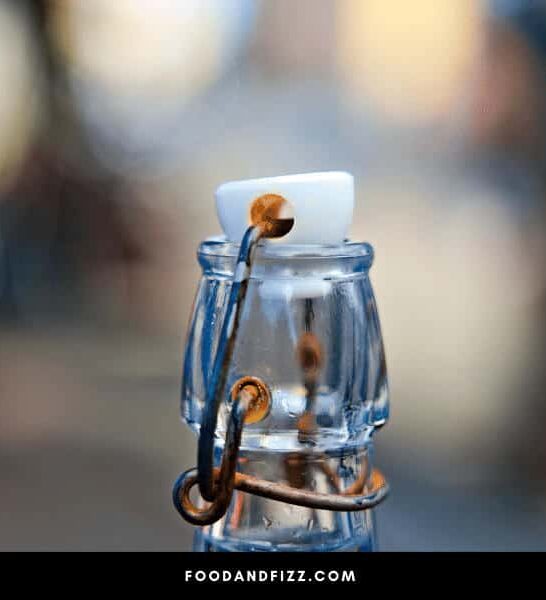When iron combines with oxygen and water, rust is formed. Rust is red and flaky in texture. Different compounds are produced by eroding steel or iron through various environmental conditions.
The color of these compounds may vary from black, yellow, grey, and brown to red which depends on the chemicals which were formed during rusting. During rusting of iron, oxidization of iron and water results in the formation of iron oxide.
Is It Right to Drink Out of a Rusty Water Bottle?
It is not hazardous for your health if you drink water from a water bottle that contains rust (red or black). But it is considered unhygienic, and it shows that the water bottle is not stored in a purified and sterile condition. With that, rust can change the color and affect the taste of water.
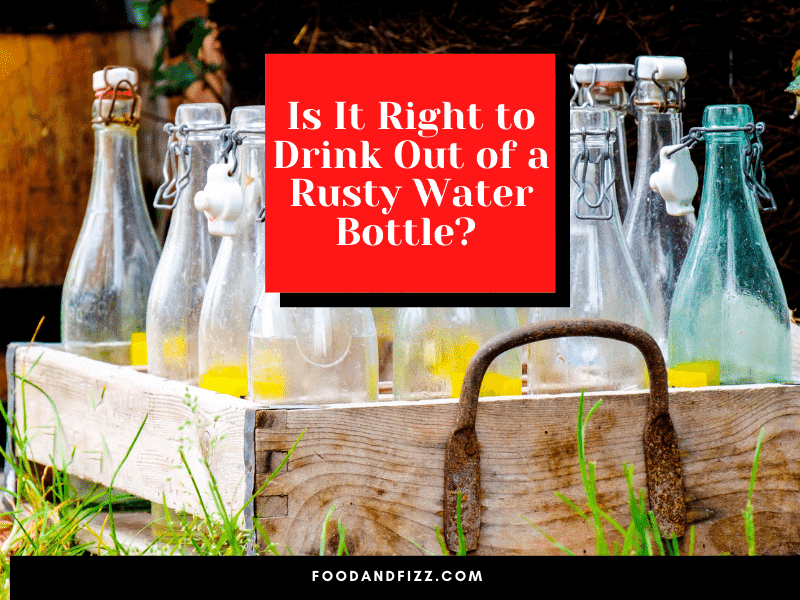
How to Remove the Rust Formed in Water Bottle?
One simple solution to remove the rust formed in the water bottle is taking a cup of vinegar or a cup of baking soda and mixing it with one cup of hot water.
Keep stirring the mixture until it is dissolved and then put it in your water bottle. Keep the mixture in your water bottle overnight to let it soak the rust, and thoroughly rinse the water bottle the next day.
Is Rust Harmful to Your Body?
If you consume water from a rusty water bottle, then it may not be harmful, but it can harm your skin and hair if you take a bath from rusty water. Moreover, if you get a wound from a rusty surface, you have to get a tetanus injection. This is because of the fact that bacteria inhabit rusty objects, which can harm the human body.
Bacteria can grow in a waterline with an excessive accumulation of rust. If Coliform bacteria are present in your rusty water line, you are at risk of developing gastrointestinal diseases like vomiting and diarrhea, which can also cause a headache.
Can Rust Form on Stainless Steel?
It is a ferrous alloy in which chromium is added, which helps it fight rust. Stainless steel is corrosion-resistant. Different concentrations of chromium are added to prevent the formation of rust. But rust can be formed on stainless steel as well because only a thin layer of chromium oxide provides it the protection from rust.
During the formation of stainless steel, it is treated with acid. Acid is used to remove excessive elements like salts, grease deposits, and dust from its surface, which can make it difficult for chromium to provide protection. Cleaning the bottle with acid is a component of the passivation procedure.
At a high temperature of about 750°F (398°C), the oxidization of chromium is prevented due to the changes in the molecules. So, rust can start forming in this condition.
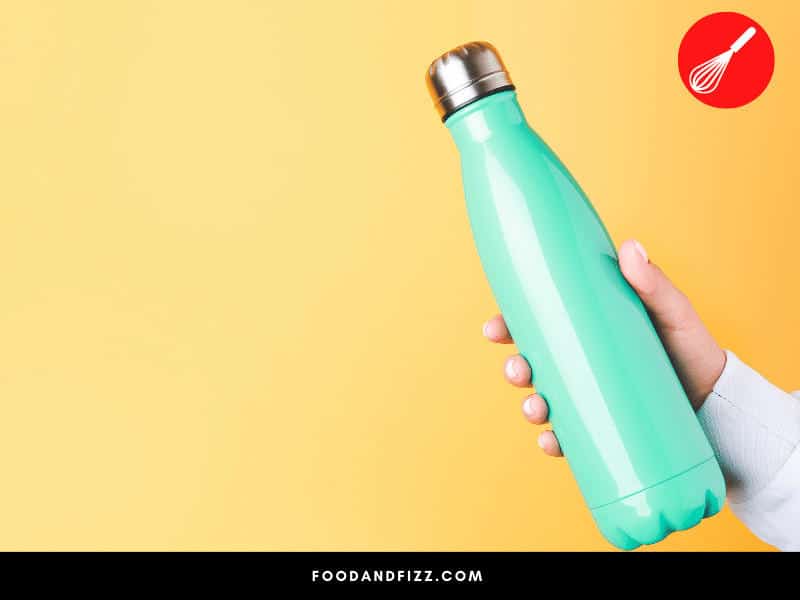
How to Remove Rust From Stainless Steel?
You have to be careful while removing rust from stainless steel because of chromium’s thin and delicate layer. The chromium layer on that stainless steel has already been affected.
This process is done to completely remove the leftover alloy from its surface and clean the dirt, grease, iron deposits, salts, etc. Then it is allowed to auto-passivate again to form the layer again.
Follow these steps to remove rust from stainless steel:
Remove the excessive rust with the help of baking soda. Use a sponge or cloth to clean the surface.
After the removal of excessive chemicals, chromium will auto-passivate to form a protective layer again.
Leave it to air-dry overnight.
The chromium layer will become thicker over time.
Rinse the stainless steel properly, and leave it to air dry.
Lastly, you may also polish it with a stainless-steel cleaner.
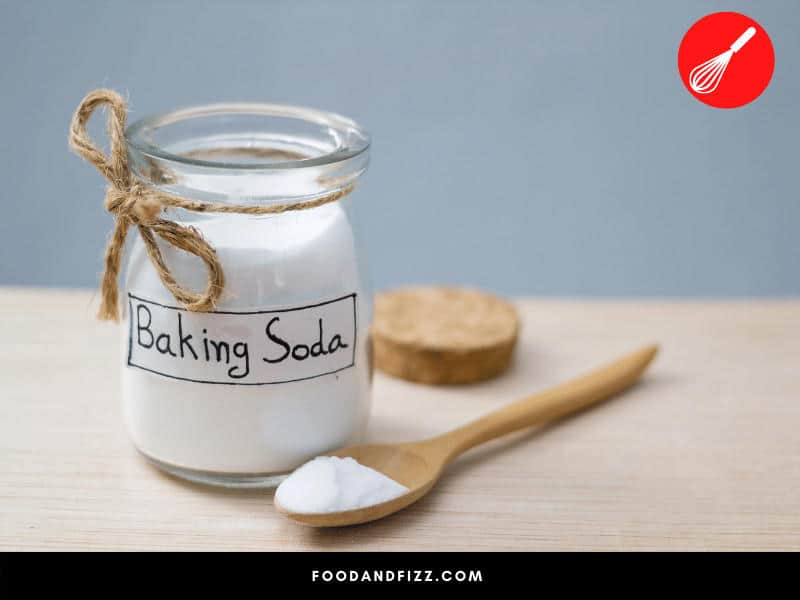
Can You Get Sick From Cooking Food in Rusty Pan?
A small amount of rust on the cooking pan does not cause much harm. But you may change the utensils if they are rusted to reduce any unavoidable health issues or toxicities.
Can You Bake in a Rusty Pan?
Baking in a rusty pan can alter the taste of your food. It can be toxic as well to heat an already rusted pan. So, you are supposed to change the utensils once they deteriorate. To prevent the utensils from rusting, you have to keep them dry because water speeds up the process of rusting.
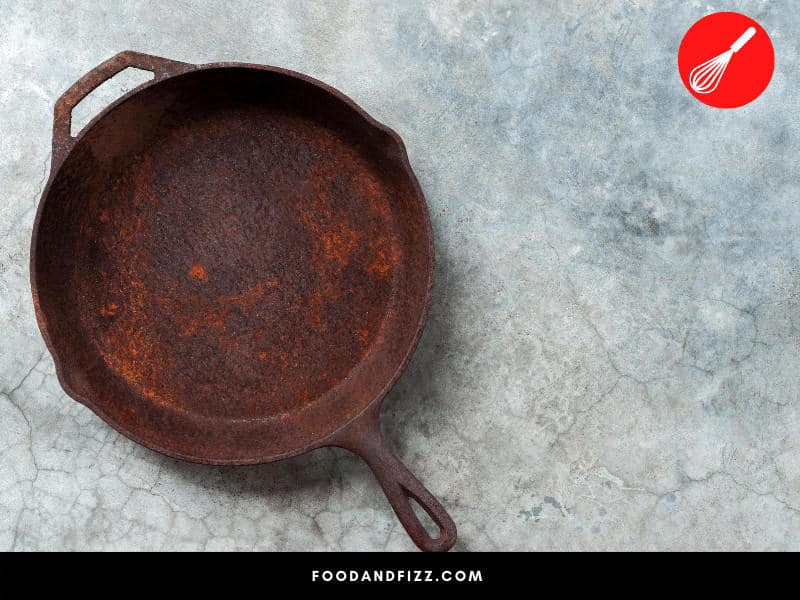
Effects of Using Rusty Water
Water in its purified form is essential for the human body. Water that is to be consumed is supposed to be clean. It is vital to treat water properly, especially nowadays when pollution is increasing.
Rust forms in water when iron pipes remain in contact with water and oxygen for a long time. A small amount of rust does not harm the body, whereas if the water is very rusty, it may cause health concerns.
One of the most common effects is that it changes the taste of the water.
Rusty water can affect your clothes by staining them.
It can damage the pipelines by braking or cracking them. This will lead to leakage of water.
Bacteria can also inhabit rusty water and can cause gastrointestinal disorders.

Frequently Asked Questions on Is It Right To Drink Out of A Rusty Water Bottle?
Can I Get a Tetanus Infection From Drinking Rusty Water?
Drinking rusty water does not cause tetanus, but if you step on a rusty nail, you may get tetanus if your immune system is compromised.
Can I Remove Rust from Water by Boiling it?
Rust cannot be removed from water by boiling it because it is not a bacteria or a parasite.
What is Anti-Rust Poisoning?
Anti-rust poisoning is caused if you accidentally inhale or swallow anti-rust products. It can cause severe pain in your throat, nose, eyes, lips, and ears.

